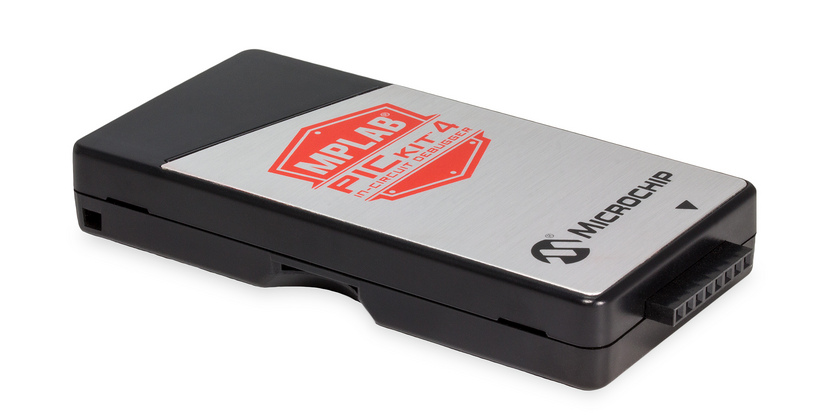New tool features faster programming, wider voltage range and improved interface options for a variety of Microchip devices
The debugging process remains an important area where many embedded design engineers would like to see improvements, according to AspenCore’s 2017 Embedded Market Study. To address these needs and enhance the development experience, Microchip Technology Inc. (NASDAQ: MCHP) introduces the MPLAB PICkitTM 4 In-Circuit Debugger. The low-cost PICkit 4 in-circuit programming and debugging development tool is meant to replace the popular PICkit 3 programmer by offering five times faster programming, a wider voltage range (1.2-5V), improved USB connectivity and more debugging interface options. In addition to supporting Microchip’s PIC microcontrollers (MCUs) and dsPIC Digital Signal Controllers (DSCs), the tool also supports debugging and programming for the CEC1702 family of hardware cryptography-enabled devices.

This low-cost programming and debugging solution is ideal for those designing in the 8-bit space, but it is also perfectly suited for 16- and 32-bit development due, in part, to its 300 MHz, high-performance ATSAME70Q21B microcontroller on board. The benefits of faster programming time are less waiting and better productivity during development. This is especially important when designing with 32-bit microcontrollers with larger memory capacities.
The PICkit 4 development tool enables debugging and programing using the graphical user interface of MPLAB X Integrated Development Environment (IDE). The tool connects to the design engineer's computer using a Hi-Speed USB 2.0 interface and can be connected to the target via an 8-pin single inline header that supports advanced interfaces such as 4-wire JTAG and serial wire debug with streaming data gateway. It is also backward compatible for demo boards, headers and target systems using 2-wire JTAG and In-Circuit Serial Programming™ (ICSP) compatibility.
Features:
- Matches silicon clocking speed
- Automatically programs as fast as the device will allow
- Target voltage of 1.20V to 5.5V
- Wide target voltage supports a variety of devices
- Can supply up to 50mA of power to the target
- Can be powered from the target to program in the field
- Minimal current consumption at <100µA from target
- Portable USB-powered and RoHS-compliant
- Powered by a high-speed USB 2.0, no external power required
- 8-pin single in-line header
- Supports advanced interfaces such as 4-wire JTAG and Serial Wire Debug with streaming Data Gateway
- Compatibility
- Backward compatible for demo boards, headers and target systems using 2-wire JTAG and ICSP
- Option to be self-powered from the target (2.7V to 5.5V)
- Programmer-to-Go (PTG) support
- SD card slot to holds program data
- Press on the logo to program the target
- Ease of maintenance and feature upgrade
The new interfaces make this low-cost tool compatible with Microchip’s CEC1702 hardware cryptography-enabled devices. This low-power, but powerful, 32-bit MCU offers easy-to-use encryption, authentication and private and public key capabilities. CEC1702 users can now benefit from using Microchip’s development tools and support rather than being required to invest in third-party tools for programming and debugging.
Pricing and Availability
The MPLAB PICkit 4 (PG164140) development tool is available today for $47.95. To purchase, go to Microchip’s easy-to-use online sales channel microchipDIRECT or contact one of Microchip’s authorized distribution partners.The MPLAB PICkit 4 In-Circuit Debugger/Programmer supports many, but not all, PIC MCUs and dsPIC DSCs at this time. The firmware is continually being upgraded to add support for new devices.